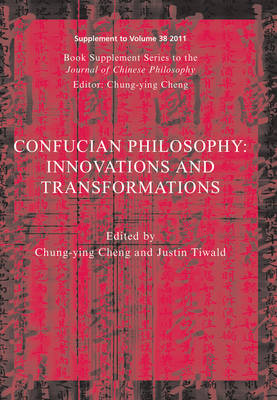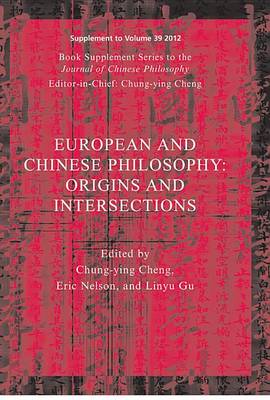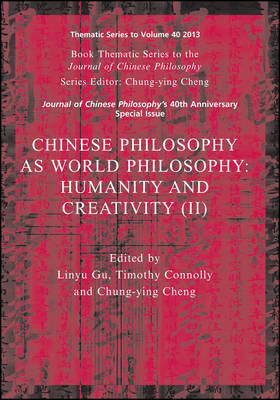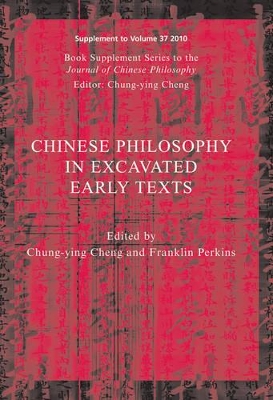Journal of Chinese Philosophy Supplement
4 total works
In Chinese tradition Confucianism has been always both a philosophy of moral self-cultivation for the human individual and an ideological guide for political institutional policy and governmental action. After the May 4th Movement of 1919 (WusiYundong ), Confucianism lost much of its moral appeal and political authority and entered a kind of limbo, bearing blame for the backwardness and weakening of China. Now that China has asserted its political rights among world nations, it seems natural to ask whether Confucianism as a philosophy has a modern or even postmodern role to play for building modern China and for enlightening the world. This question is even more meaningful in light of the fact that there is a genuine need felt in China for a return to its Confucian heritage and vision for purposes of sustaining societal harmonization and reconstructing cultural identity in the modern world.
The Journal of Chinese Philosophy initiates this volume on the origins of philosophy and their relations in philosophical languages, be it Chinese or Greek or European as not merely derived from the Greek. Given this understanding we see how a philosophical issue could be discussed significantly from both the European-Western position and the Chinese perspective. Each position and perspective embodies a different historicity and viewpoint as experienced in the vision and pursuit of reality and humanity. The contrast between the European and Chinese traditions of philosophy is impressive and yet mutually stimulating as shown in the works of Heidegger and post-Heideggerian authors. The authors of this book illustrate how the European-Western and Chinese approaches could be complementary and yet together could be philosophically insight-productive.
Chinese Philosophy as World Philosophy
by Linyu Gu, Timothy Connolly, and Chung-Ying Cheng
Published 21 October 2014
Sixteen collected essays examine Chinese Philosophy around 4 major topics Furthers and deepens fundamental inquiries, including: What is philosophy? Is there more than one origin of philosophy? Have we embraced other traditions as well as integrated others into our own? How do we view Chinese philosophy in the multi-origins of the world philosophy and vice versa? The second volume of the festschrift for celebrating the Journal of Chinese Philosophy s 40th anniversary
Chinese Philosophy in Excavated Early Texts
by Chung-Ying Cheng and Franklin Perkins
Published 4 March 2011
T he nine papers of this Supplement on these significant issues and important ideas are closely accentuated and critically discussed by well-established specialists, philosophers and historians, from various relevant disciplines of study.



